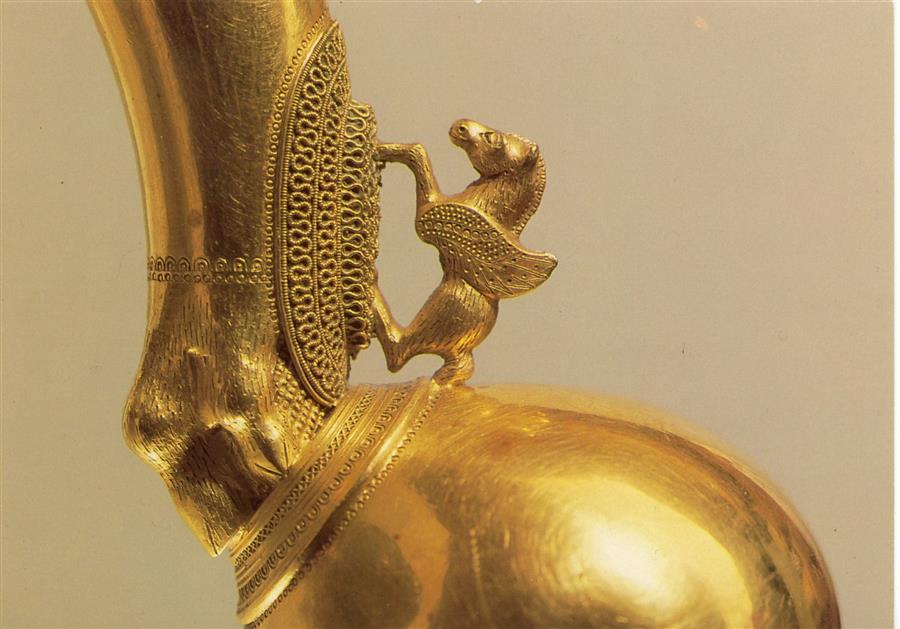I really, really dislike 'blob' civilizations, because it means we have to either make up stuff from fragments because we don't have enough information, or 'lump' several very different sets of traits together from different geographic and temporal areas to make up a civilization. In most cases, we can do better.
Specifically, there was a fairly long discussion of Celtic Leaders elsewhere on this very Forum, but I think I can sum it up here:
1. The Celts can be the general Culture, which spread at once time or another from Ireland to modern Turkey, and included parts of the Balkans, central southern Germany, France, Spain, and northern Italy. Potential leaders include Boudicca of the Iceni in Britain, the Irish historical and mythological leaders like Brian Boru and Cuchulain, historical Celts like Brennus (two different men), Vercingetorix, Bituitis, or Divitiacus. The problem is, the cultural area is so large and diverse, and never remotely acted under a single capital or leader, that all the leaders are local and do not in any way represent all the diverse elements. On the other hand, this does encompass the maximum of all the Celtic traits: artistic and metalworking excellence, migrating invasions, fierce warriors, druidic philosophers, priests, politicians and diplomats, bards and bardic traditions, swordsmen, chariots, headhunting, tattooing and tartans. Lots to choose from, but no single set of traits/Uniques that will cover everything.
2. The 'Celts' can be specifically the Gauls centered in France, but 'spilling out' culturally into northern Italy, southern Germany, and Spain. The closest they ever came to being a Unified State was a few years under Vercingetorix, but they do seem to have had a fairly uniform set of 'cultural norms' including most of the traits listed above, and they were the only Celtic society that was a Civilization in game terms - in the few generations before the Roman Conquest of Gaul, they were starting build cities - Bibracte and Gergovia may have both approached 20,000 in population, making them very respectable Urban Concentrations in Ancient, Classical, or Medieval Eras.
Of course, choosing the Gauls means the choice of potential leaders is more limited - no Irish, Welsh, or Britons need apply - but it still leaves War Leaders like the first Brennus or Bituitis, a unifying Diplomatic/Military Leader like Vercingetorix, a Diplomatic/Negotiator Warleaders like (the 2nd) Brennus, or even a real, live Druid like Divitiacus - who could be philosophical, religious, diplomatic, or even scientific (after all, they did have Druidic Schools with a multi-year curriculum) take your Pict (who were from the Celtic margin in Northern Britain).
My own preference would be to concentrate on a Gallo-Celtic Civilization with, possibly, alternate Leaders of Vercingetorix and Divitiacus or (2nd) Brennus. The advantages are that you have leaders who can be pretty accurately defined by historical sources, a potential long list of City Names that are again, historical and not dated as late as the Renaissance, and a series of fairly well-known traits from which Uniques can be derived:
Improvement - Oppidum which were at once Fortifications, Religious Centers, and Trade Nodes
Building - Druidic School
Military Unit - Gaesati Fanatics, Soldurii ('oathsworn') Swordsmen, Gallic Cavalry, even chariots until the beginning of the 'Roman' period.
Institutions - Druidic priest/learned class, accurately-measured and well-built roads (Roman Roads in Gaul were almost all built on existing Celtic foundations, including paving), Astronomically-calculated Festivals and calendars, early adoption of mail armor and long swords (they invented both) and wheeled vehicles with well-built spoked wheels, yokes, and harness (the Latin words for all of these are borrowed from Celtic roots).
This also has the advantage that it leaves the Welsh, Britons, Irish, Scots, Picts, etc. 'available' to be developed as separate or alternative civilizations from the Celtic-Gallic.




